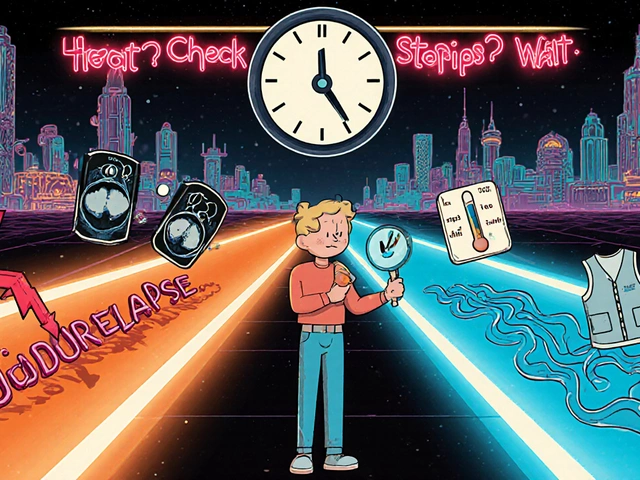Motion Sickness
When dealing with motion sickness, a condition caused by conflicting signals from the inner ear, eyes, and deeper body parts that leads to nausea, dizziness, and vomiting. Also known as travel sickness, it often shows up during car rides, flights, or amusement rides.
Meclizine, an antihistamine commonly prescribed to ease the symptoms of motion sickness works by calming the vestibular system that sends mixed messages to the brain. Antihistamine, a class of drugs that block histamine receptors to reduce nausea and dizziness are the backbone of most over‑the‑counter solutions. Vertigo, a sensation of spinning that often accompanies motion sickness can be tamed with these same agents, making the trip much smoother.
Why does motion sickness happen? The brain gets confused when the inner ear (which tracks balance) tells it you’re moving, but your eyes see a stable environment, or vice‑versa. This mismatch triggers the vomiting center, causing nausea and the urge to vomit. The more you stare at a fixed point or read, the stronger the conflict becomes. Simple tricks like looking at the horizon or keeping your head still can cut down the signal clash.
Practical ways to prevent and treat it
First, choose the right medication. Meclizine is popular because it works for a wide range of ages and has a relatively low drowsiness rate. Other antihistamines like dimenhydrinate or diphenhydramine are alternatives, but they may make you sleepy. If you’re planning a long trip, take the pill about an hour before you start moving – that gives the drug time to settle in your system.
Second, use non‑drug methods. Sitting in the front seat of a car, where motion feels less intense, helps a lot. On a boat, staying on deck and focusing on the distant shore reduces the inner‑ear conflict. For flights, choosing an aisle seat and keeping your neck supported can lessen the dizzy feeling.
Third, mind what you eat and drink. Heavy meals, alcohol, and strong odors can aggravate nausea. Light snacks, plenty of water, and ginger (in tea or candy form) are gentle ways to keep your stomach calm. If you feel the wave coming, breathe slowly through your nose and exhale through your mouth – that steadies the nervous system.
Many people wonder if motion sickness can be cured permanently. The short answer is no, but you can train your body. Repeated exposure, like taking short practice rides, lets your brain adapt to the sensory mismatch. Over time, the severity drops, and you may need less medication.
Below you’ll find a curated collection of articles that dive deeper into specific drugs, compare treatment options, and give step‑by‑step advice on managing symptoms. Whether you’re looking for the best over‑the‑counter choice or want to understand the science behind vertigo, the posts ahead have you covered.
 28 September 2025
28 September 2025
Travel Sickness and the Elderly: Caregiver Tips for a Smooth Journey
Practical tips for caregivers to prevent and handle travel sickness in seniors, covering symptoms, prevention, medication, packing checklist, and emergency steps.
Latest Posts
-

MS Relapse vs. Pseudorelapse: How to Tell the Difference and Why Steroids May Not Be the Answer
-

Legit vs Rogue Online Pharmacies: Red Flags to Watch
-

Duphalac (Lactulose) vs Other Laxatives: A Detailed Comparison
-

Inactive Ingredient Interactions in Generic Medication Combinations
-

Switching Medications: Proven Strategies to Reduce Side Effects and Avoid Withdrawal

19